Is it time to focus on developing the leaders of the future?
As the world gets settled into new ways of working for many organisations, leadership development has become a key area of focus to ensure that flexible and remote working models can be lead and managed effectively for the long term to allow all individuals within a business to thrive.
What is the true definition of leadership development over leadership training?
Simply put its educational programs designed to improve the performance of first-line supervisors, middle managers, and senior executives within an organisation. According to industry research, the most common leadership development subjects include:
Coaching
Communication
Negotiation
Teamwork and collaboration
Diversity and inclusion
Leading innovation
Providing feedback
Emotional intelligence
How flexible is your leadership style?
Moreover, how is the leadership style of your management team? Is it enabling each of you to lead your people appropriately and successfully in any situation?
We tend to look at leaders with a two dimensional, black or white view. Are they a commanding “do as I say” kind of leader, or perhaps a teaching and developing coaching leader?
The truth is that every good leader in today’s very changed workplace must be multi-dimensional and able to work out which approach will work best in any given situation and apply it successfully.
Today’s most successful leaders need to be emotionally intelligent enough to pick up if one of their team is struggling with their workload and assess whether it’s a will or a skill issue. (No easy task with the advent of remote and hybrid working.) Then they also need to be assertive enough to tackle any issues head on with sensitivity, but also have courage to make the toughest decisions with integrity and honesty.
This is where Situational Leadership, comes into its own. Not a new concept by any means, but one which is successful in navigating the rapidly changing demands that the pandemic has had on businesses. The current landscape requires agile, flexible, perceptive, and responsive leaders, who can adapt their style to the situation in hand.
There are several Situational Leadership models, but let’s go with Daniel Goleman’s, the author of Emotional Intelligence, who defines six styles within Situational Leadership®.
Coaching leaders, who work on an individual’s personal development as well as job-related skills. This style works best with people who know their limitations and are open to change.
Pacesetting leaders, who set very high expectations for their followers. This style works best with self-starters who are highly motivated. The leader leads by example. This style is used sparingly since it can lead to follower burnout.
Democratic leaders, who give followers a vote in almost all decisions. When used in optimal conditions, it can build flexibility and responsibility within the group. This style is, however, time consuming and is not the best style if deadlines are looming.
Affiliative leaders, who put employees first. This style is used when morale is very low. The leader uses praise and helpfulness to build up the team’s confidence. This style may risk poor performance when team building is happening.
Authoritative leaders, who are very good at analysing problems and identifying challenges. This style is good in an organization that is drifting aimlessly. This leader will allow his or her followers to help figure out how to solve a problem.
Coercive leaders, who tell their subordinates what to do. They have a very clear vision of the endgame and how to reach it. This style is good in disasters or if an organization requires a total overhaul.
Each of these Situational Leadership styles have their advantages and disadvantages.
Take, for example, if a last-minute change to the budget is required, a leader who applies coaching to every situation, might struggle to get the decisions made quickly. An authoritative or coercive style would reach the objective with more success. However, the next day a new member of the team may need to write a presentation for the CEO. An authoritative style is not going to get the best experience for that team member or enable them to develop their skills, whereas a coaching style would provide an opportunity for learning and growth.
How can you ensure you have an organisation where you are creating versatile leaders for the future?
We ask you to start with yourself as a leader, be aware of your own culture, what you are setting the example of being, be self-aware on a personal and organisational level. Then re-examine to see what you and your team are creating for the future, and what may need to change.
Reward openness and curiosity, encourage managers to approach every situation as a leader by assessing it with new eyes and applying the right style. Remind them that just because they handled something successfully one way today, it doesn’t mean that’s the right way to approach it tomorrow. Perhaps most importantly, use these opportunities as learning experiences and if mistakes happen, review how they could have done it differently.
There are training courses, assessments and coaching tools which will teach your managers about their own style and the styles and skills they might want to develop, and how to do it. Industry research has shown that £2.5 billion1 is being invested each year – so we see it as crucial that this investment is effective and creates positive results.
However, many leadership development programs have failed due to a variety of factors not being considered. Here’s some tips to make sure your investment is a holistically considered one:
• Be crystal clear on what the programme is for
Too many programmes assume that one size fits all and that the same group of skills or leadership style is appropriate regardless of say, strategy or culture. Ask the question right at the start – what is the programme for?
• Look at the reality, not just the theory
What format will work within your organisation. How can you ensure that training time away from work will be implemented fully in a real time scenario? How do your people learn best and how does a programme truly become a part of your culture?
• Value the importance of behavioural change
This is often the hardest element to embrace within any leadership development programme as by their very nature they are often designed to push people out of their comfort zone which can ignite all sorts of reactions and blocks to change. ProAction HR have several techniques and tools to create sustainable behaviour change.
• Have a process in place to track and measure the results
Leadership development can be a significant investment in both time and resource, it is therefore essential to ensure that any programme is developed has very clear measurements and success criteria in place.
Can we support you in developing your leaders?
By sidestepping the stumbling blocks mentioned above, ProAction HR can create a programme for you which will develop stronger and more capable leaders, save time and money, and boost morale. A key priority for many as we look to the future post pandemic. But why would you choose us to support you?
ProAction HR was trusted with a multinational leadership development programme
It has been an organic step for us to move into providing Leadership Development and training as our Directors and Associates have delivered Learning & Development, been managers, and been on the receiving end of training for most of their careers (and we’re no spring chickens!).
So, when we were invited to deliver an internally designed leadership development programme for a global digital & recruitment company, we couldn’t be happier that they quickly saw that unique collective experience we offer.
Very quickly the internal team that developed the programme, moved from not wanting anyone to deliver their baby, to asking for our feedback on how we could help them improve the initial version and trusting us in helping nurture it so it could grow to its full potential.
This programme is an inspired mix of theory, practice and, most importantly, real world discussion and debate - led by experienced coaches and learning facilitators. It gave the ProAction team the chance to immerse ourselves in delivering a well thought out and highly considered programme that had been developed with pure passion and was wholeheartedly sponsored at the most senior level of the business.
It is in essence a wholesale cultural change programme with the aim to infect the business faster and more virulently than COVID-19 could even dream of doing. One that is designed to develop leaders with the business principles embedded in their very being - and give them the skills to uphold these principles in their people.
This programme is now being rolled out virtually with delegates across the globe and from every subsidiary company within the company portfolio, purposefully mixed to develop diversity, create multicultural experience and spawn supportive and empowering peer networks which will last far longer than the programme itself.
ProAction HR are delighted that we have gone from being just a provider, to a true business partner with this organisation. Collaboration has been key for them to reach their goals, and for those taking part in the leadership development training to achieve their learning objectives too.
We would love to show your organisation how we can add value to your leadership development, whether it be reviewing or writing a programme, working in partnership to fine tune or enhance existing assets, delivering those that are already launched, or welcoming your people to join our next Management Development Programme.
Book a discovery call to find out more about helping your managers become more agile, responsive and ready for any challenge that gets thrown at them.
1 Taken from The Leadership Training Market, Updated Nov. 20, 2020

